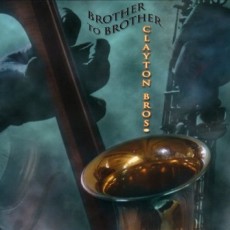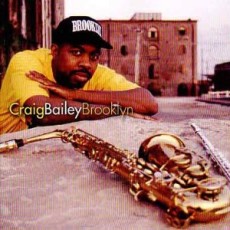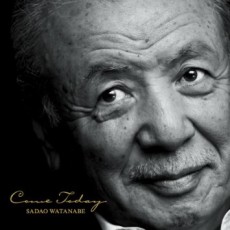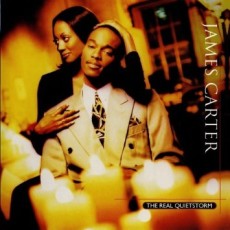
Daily Dose Of Jazz…
Jeff Clayton was born February 16, 1954 in Venice, California and studied oboe at California State University and undertook a tour with Stevie Wonder. Following this he recorded with Gladys Knight, Kenny Rogers, Michael Jackson, Patti Labelle, Madonna B. B. King, Joe Cocker and Ray Charles.
No stranger to jazz, joining his brother, bassist John Clayton, they founded the Clayton Brothers in 1977 and later formed the Clayton-Hamilton Orchestra with drummer Jeff Hamilton. Clayton has performed and recorded with Frank Sinatra, Sammy Davis Jr, Ella Fitzgerald, Woody Herman, Lionel Hampton, Ethan Smith, Lena Horne, Kurt Elling, Diana Krall, and the Count Basie Orchestra under the leadership of Thad Jones. From 1989 to 1991 he was a member of the Phillip Morris Superband, and has toured with Gene Harris and Dianne Reeves.
In 2009 Brother To Brother by The Clayton Brothers received a Grammy nomination for Best Jazz Instrumental Album, Individual or Group. Alto saxophonist and flautist Jeff Clayton continues to perform, record and tour.

Daily Dose Of Jazz…
Craig Bailey was born on February 3, 1960 in Cincinnati, Ohio. His interest in music began at age 8, learning to play the recorder with a small group of classmates. Following that, he became a part of the All City Boys Choir. He enrolled in the beginning band program in junior high and took up the clarinet, saxophone and flute, perfecting his skills in playing all three instruments in high school and college.
Bailey earned his undergraduate degree from the University of Miami and headed to New York in 1985. He worked with drummer Charlie Persip’s Superband. He went on to join the world-renowned group of Panama Francis and his Savoy Sultans, learning traditional swing music and traveling to Europe for the first time.
Two years later Craig landed an audition with Ray Charles and became his lead alto saxophonist from 1988-2004. During this period he collaborated the Tana Reid Quintet, Bobby Watson’s Tailor Made Big Band, Nancy Banks Orchestra and the Tom Harrell Big Band among others. He developed his small group writing and playing style, leading him to his own arranging and composing.
Bailey dropped his debut album, A New Journey in 1995 to critical acclaim and is referenced in The Encyclopedia of Jazz. His sophomore release, Brooklyn, received favorable review. He is one of the most consistently inventive and potentially significant reed players of his generation. In between his performing duties Craig Bailey currently holds the position of Assistant Professor of Music in Jazz Saxophone at the University of Cincinnati.

Daily Dose Of Jazz…
Sadao Watanabe was born on February 1, 1933 in Utsunomiya, Japan and first began learning music at the age of 18. He started performing professionally in 1953. By 1958 he had established himself as a world-class saxophonist having performed with leading musicians and quartets. In 1962 he left Japan to study at Berklee College of Music in Boston.
Known for his bossa nova recordings, Sadao’s work encompasses a large range of styles with collaborations from musicians all over the world. Of his 72 albums to date, he has had 13 albums reach the top 50 Billboard charts and two within the Top 10. He has also had numerous albums reach number one on the jazz charts.
Watanabe has been awarded the Order of the Rising Sun – the imperial medal of honor, the Fumio Nanri Award, and an honorary Doctorate Degree from Berklee College of Music.
In addition to his musical career, alto and soprano saxophonist and flutist Sadao Watanabe is also a published photographer with six books to his credit in Japan. He is also a U.S. citizen sharing his time between his homeland and Los Angeles, California as he continues to perform, record and tour.

Daily Dose Of Jazz…
Kat Parra was born on January 13, 1962 in San Francisco, California and spent part of her teenage years in Chile. Upon her return, she move to southern California to attend University of California at Los Angeles where she studied classical flute and voice for a year. Moving to the Silicon Valley area she shifted her educational focus to jazz, studying voice at San Jose State University alongside singer Patti Cathcart of Tuck & Patti, who was a major influence.
Kat spent five years as a lead vocalist for the Bay area salsa band Charanga Nueve, and they opened for the likes of Celia Cruz and Los Van Van of Cuba. But despite all that musical activity, she still had a “day gig” working for the tech giant Cisco Systems. In 2006 she left Cisco to be a full-time singer and concentrate on music exclusively.
That very same year Parra recorded her first solo album, Birds In Flight produced by Bay Area-based trombonist Wayne Wallace on JazzMa Records. After that, she signed with Wallace’s indie label, Patois Records, releasing her second solo album, Azucar de Amor (Sugar of Love) in 2008.
Kat is a flexible and broad-minded jazz vocalist who has very strong Latin leanings but has also been affected by Middle Eastern, Arabic, and North African music as well as greatly influenced by Afro-Cuban jazz. She has also combined jazz with everything from Brazilian samba to Afro-Peruvian music. She plays flute, guitar, and piano, and continues to perform in several different languages, including English, Spanish (which she speaks fluently), Portuguese, French, and Ladino, which is the language of Sephardic Jews and is considered one of the romance languages.

Daily Dose Of Jazz…
James Carter was born January 3, 1969 in Detroit, Michigan and learned to play under the tutelage of Donald Washington, becoming a member of his youth jazz ensemble Bird-Trane-Sco-NOW!! As a young man, he attended Blue Lake Fine Arts Camp and become the youngest faculty member at the camp. He first toured Europe (Scandinavia) with the International Jazz Band in 1985 at the age of 16.
By 1988, while at the Detroit Institute of Arts, Carter was a last-minute addition for guest artist Lester Bowie, which turned into an invitation to play with his new quintet in New York that following November at the now defunct Carlos 1 jazz club. This New York invite was pivotal in his career, putting him in musical contact with the world, and he moved to the city two years later.
James has won Down Beat magazine’s Critics and Readers Choice award for baritone saxophone several years in a row. He has performed, toured and played on albums with Lester Bowie, Julius Hemphill, Frank Lowe & the Saxemble, Kathleen Battle, the World Saxophone Quartet, Cyrus Chestnut, Wynton Marsalis, Dee Dee Bridgewater and the Mingus Big Band. On his 2000 album Chasin’ the Gypsy, he recorded with his cousin, jazz violinist Regina Carter.
An authority on vintage horns, Carter owns an extensive collection of them. He continues to be a prominent force as a performer and recording artist on the jazz scene since the late 1980s, playing saxophones, flute and clarinets.


